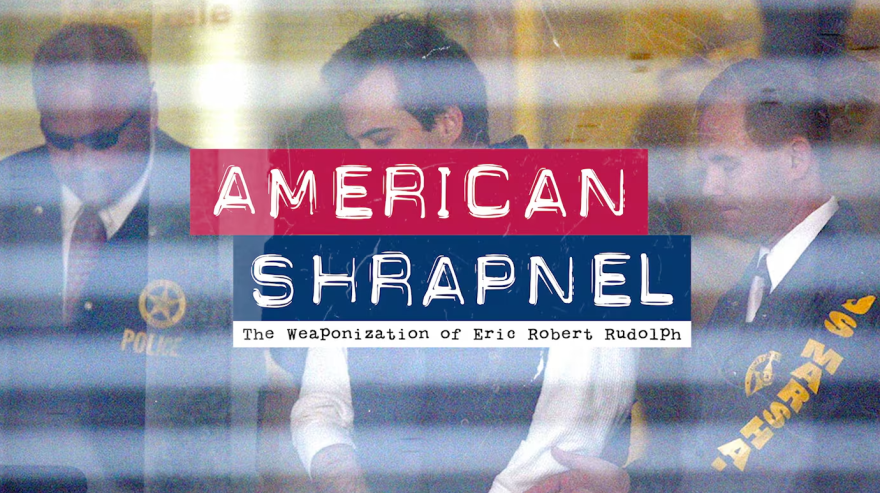The 1996 Summer Olympics came to a halt when a backpack filled with pipe bombs tore through the crowd in Atlanta’s Olympic Park.
The attack directly killed one bystander and injured 111 others.
It was the first of four bombings orchestrated by Eric Rudolph, eventually dubbed the “Olympic Park Bomber.”
Rudolph’s terror spree spanned two years, fueled by far-right, Christian extremist ideology. He went on to attack two abortion clinics and a lesbian bar before his capture in 2003.
Award-winning journalist John Archibald covered the arrest as it happened. Now, he joins Western Kentucky University journalism professor Becca Andrews to retrace Rudolph’s bloody legacy.
“Rudolph was really motivated by this belief that as civilization modernizes, we’re becoming more inclusive, more accepting of people from different backgrounds — moving into what Rudolph called the ‘New World Order,’” Andrews said.
The duo’s upcoming podcast, “American Shrapnel: The Weaponization of Eric Rudolph” releases this week.
Andrews said she brings to the podcast an expertise in anti-abortion extremism and white supremacism, fostered in part by her upbringing in west Tennessee and her work at Mother Jones magazine.
While Rudolph’s motives may have seemed fringe at the time, Andrews said many of his ideas – including fears of “globalists”, perceived socialism, and transgender people – have since become mainstream.
“Rudolph hated abortion, he hated gay folks, he hated the government, (and) he loves the idea of dismantling government, which we’re seeing right now in real time,” Andrews said.
His arrest and incarceration in Colorado’s infamous Florence Supermax prison was not the end of his political legacy.
The militant anti-abortion terror group Army of God distributed Rudolph’s essays calling for violence, and a novel by Rudolph featuring a transgender antagonist was published in 2013.
Rudolph tried unsuccessfully to vacate some of his multiple life sentences in 2024.
Andrews said Rudolph’s ideology has shifted over time, but ultimately continues to inspire far-right extremism. She said there’s a common misconception that terrorists like Rudolph are “lone wolves” when they often are connected to various extremist networks and connections.
“He was getting all kinds of stuff in the mail, he’d visited with white supremacist groups in Idaho, he was calling on the Army of God, who he was acting on behalf of,” Andrews said. “(Some people) make him seem like this isolated case, when that wasn’t actually the reality.”
Andrews added that her background and research into Rudolph helped inform her upcoming WKU journalism class centered around white supremacism.
She added that the expertise of both Archibald, a two-time Pulitzer winner, and John Hammontree, an award-winning journalist and podcast producer, made creating the new podcast series “the experience of my life.”
The team draws on dozens of interviews and dives into the FBI’s extensive investigation into Rudolph.
“The Feds looked for Rudolph for five years – that’s (one of) the largest and longest manhunts in US history before 9/11,” Andrews said. “Getting to see who all was interviewed about Rudolph’s beliefs and where they were coming from, as well as the different ways the Feds tried to understand (Rudolph), was invaluable.”
The first three episodes of “American Shrapnel” will be available Wednesday, July 30, on all major podcast platforms.


